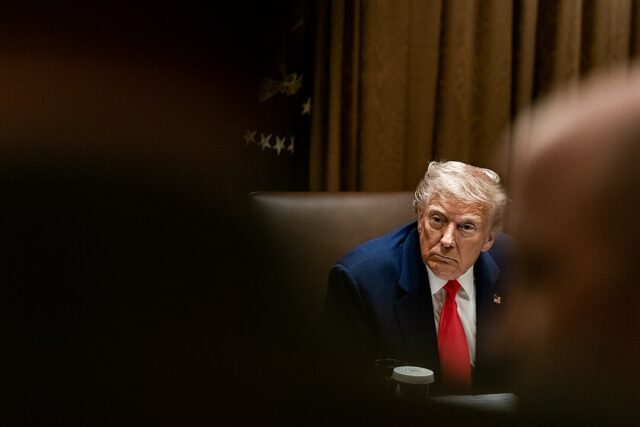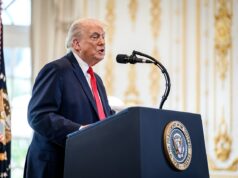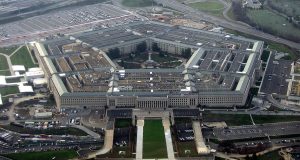In a decisive move to confront Iran’s destabilizing influence in the Middle East, the U.S. State Department on Wednesday officially designated four Iran-backed Iraqi militias as Foreign Terrorist Organizations (FTOs). The groups—Harakat al-Nujaba, Kata’ib Sayyid al-Shuhada, Harakat Ansar Allah al-Awfiya, and Kata’ib al-Imam Ali—have long served as armed proxies for Tehran, attacking U.S. and coalition forces and threatening American diplomats.
All four groups were previously sanctioned by the Treasury Department as Specially Designated Global Terrorists (SDGTs) in 2023, but the new designations escalate U.S. pressure by invoking additional legal penalties, travel bans, and asset freezes.
“Iran-aligned militia groups have conducted attacks on the U.S. Embassy in Baghdad and bases hosting U.S. and Coalition forces, typically using front names or proxy groups to obfuscate their involvement,” Secretary of State Marco Rubio said in the announcement.
Iran’s Proxy War Network: The Islamic Resistance in Iraq
According to the Foundation for the Defense of Democracies (FDD), these four militias form the backbone of a Tehran-controlled umbrella organization known as the Islamic Resistance in Iraq (IRI). The IRI surged in prominence after Hamas launched its deadly October 7, 2023 assault on Israel.
Since then, the IRI has claimed or been linked to hundreds of rocket, drone, and IED attacks on U.S. and allied forces in Iraq, Syria, and Jordan. U.S. officials say the network was responsible for the January 2024 drone attack in Jordan that killed three American service members, marking one of the deadliest assaults on U.S. troops in years.
“The Trump administration broke the taboo during term one when it proved it could name, shame, and punish Iran-backed militias in Iraq without the country devolving into civil war,” said Behnam Ben Taleblu, senior director of the FDD’s Iran program. “Now in term two the administration is upping the ante continuing a campaign of designations against the agents of influence and terror of Iran in Iraq.”
Popular Mobilization Forces: A Trojan Horse for Tehran
The four newly designated groups are also part of Iraq’s Popular Mobilization Forces (PMF)—a nominally state-run coalition originally created to fight ISIS, but which has been heavily infiltrated and directed by Iran’s Islamic Revolutionary Guard Corps (IRGC).
“Tehran relies on these militias to literally have a state within a state in Iraq,” Ben Taleblu warned. “Sandwiching these and other Iran-backed terror groups between Treasury Department [Specially Designated Nationals and Blocked Persons] SDN listings and State Department [Foreign Terrorist Organizations] FTO listings, as the Trump administration previously did with their patron, the IRGC, in term one is the right approach.”
Trump’s Proven Record on Targeting Terror Groups
This new wave of designations continues the Trump administration’s aggressive posture against Iran and its terror proxies. In 2019, the administration made history by designating the IRGC itself as a Foreign Terrorist Organization—the first time the U.S. had ever used the FTO label on part of another nation’s military.
That same year, U.S. forces conducted a precision strike in Baghdad killing Qasem Soleimani, the commander of the IRGC’s elite Quds Force, and Abu Mahdi al-Muhandis, the deputy commander of the PMF and leader of the Iran-backed Kata’ib Hezbollah militia, another group long designated as an FTO.
Other Iran-backed entities targeted by the Trump administration included:
- Asa’ib Ahl al-Haq (AAH) — designated in 2020 for killing U.S. and coalition troops.
- Harakat Hezbollah al-Nujaba (HHN) — sanctioned in 2019 for its role in attacks on American forces.
- Kata’ib Hezbollah (KH) — designated in 2009, but further sanctioned and struck by U.S. airpower under Trump following deadly rocket attacks.
These actions sent a clear message that attacks on Americans would carry severe consequences—a doctrine many national security analysts argue helped restore deterrence in the region.







Hey, instead of calling them new names, let’s start killing these savages!